Trivia Browser

▲
1
▼
Ys vs. Trails in the Sky: Alternative Saga has an anti-piracy feature activated if the game detects the PlayStation Portable's system firmware is illegitimate. During a match, the collisions for walls and some floors will be turned off at random points, occasionally causing players to clip through walls or fall out of bounds before respawning back at the starting location. Additionally, some bosses and enemies will not respawn if they fall off the map, making fights with them unwinnable.

subdirectory_arrow_right Pokémon LeafGreen Version (Game)
▲
3
▼
 Shortly after the game's release, a screenshot started circulating online depicting the Seagallop ferryman in Vermilion City telling the player: "By the way: if you like this game, buy it or die." Those who posted the screenshot claimed that it was a hidden message which was only triggered if the game detected that it was running a pirated copy. This claim appeared to be further corroborated by people claiming that they had encountered the message themselves when playing the game with unofficial Game Boy Advance emulators or when hacking legitimate cartridges with cheat devices, and attracted further popularity after being disseminated by various gaming YouTubers.
Shortly after the game's release, a screenshot started circulating online depicting the Seagallop ferryman in Vermilion City telling the player: "By the way: if you like this game, buy it or die." Those who posted the screenshot claimed that it was a hidden message which was only triggered if the game detected that it was running a pirated copy. This claim appeared to be further corroborated by people claiming that they had encountered the message themselves when playing the game with unofficial Game Boy Advance emulators or when hacking legitimate cartridges with cheat devices, and attracted further popularity after being disseminated by various gaming YouTubers.However, while the screenshot was not photoshopped, the claim that it was an anti-piracy measure was not true. Rather, the text was added into the game's code by an anonymous individual who distributed a ROM of it online; the claim that it was an anti-piracy feature was most likely used by the individual to circumvent ROM distribution sites' restrictions on modified games. This explains why anecdotal reports of encountering the text were so much higher than what would be expected from a complete hoax, as well as why the text is absent when examining an unaltered ROM of the game in a hex editor.
DidYouKnowGaming video which mentions the rumor (before it was debunked):
https://www.youtube.com/watch?v=4HsxuGMWnXM
YouTube video by Tech Rules debunking the rumor:
https://www.youtube.com/watch?v=0XjHZ-V4ooA&;t=604s
https://www.youtube.com/watch?v=4HsxuGMWnXM
YouTube video by Tech Rules debunking the rumor:
https://www.youtube.com/watch?v=0XjHZ-V4ooA&;t=604s
Platform: Nintendo Switch
subdirectory_arrow_right Nintendo (Company)
▲
0
▼
In 2020, hackers Gary Bowser and Max "MAXiMiLiEN" Louarn were arrested and extradited to the United States for money laundering and selling products meant to crack the Nintendo Switch's copy protection to run pirated copies of games. The two were members of Team Xecuter, a hacking group which specialized in similar measures for a large number of Nintendo, Sony, and Microsoft consoles. In 2021, Bowser pled guilty on conspiracy and trafficking charges and was sentenced to 40 months in prison; Nintendo later filed a separate civil suit against him, which together with the prison sentence left him $14.5 million in debt. The company's legal department claimed during the court case that the unusually severe punishments were intended to send a chilling effect through the piracy world, intimidating would-be hackers by using Bowser's punishment as an example.
Following the case, multiple news outlets noted the irony of Gary Bowser's last name, which is shared with Nintendo of America president Doug Bowser and Mario series antagonist Bowser.
Following the case, multiple news outlets noted the irony of Gary Bowser's last name, which is shared with Nintendo of America president Doug Bowser and Mario series antagonist Bowser.
The Guardian article:
https://www.theguardian.com/games/2024/feb/01/the-man-who-owes-nintendo-14m-gary-bowser-and-gamings-most-infamous-piracy-case?CMP=Share_iOSApp_Other
[Additional sources and revision contributed by VinchVolt.]
United States Department of Justice article about the arrest: https://web.archive.org/web/20220502090355/https://www.justice.gov/usao-wdwa/pr/two-members-notorious-videogame-piracy-group-team-xecuter-custody
Video Games Chronicle article about Nintendo's intentions: https://www.videogameschronicle.com/news/nintendo-said-hacker-gary-bowsers-jail-sentence-was-a-unique-opportunity-to-send-a-message/
The Verge article about Bowser's sentence: https://web.archive.org/web/20220211013315/https://www.theverge.com/2022/2/10/22927827/gary-bowser-sentenced-nintendo-switch-hacks-team-xecuter
Polygon article about Bowser's sentence: https://web.archive.org/web/20220210205338/https://www.polygon.com/22927851/bowser-nintendo-switch-hacker-sentenced-prison
https://www.theguardian.com/games/2024/feb/01/the-man-who-owes-nintendo-14m-gary-bowser-and-gamings-most-infamous-piracy-case?CMP=Share_iOSApp_Other
[Additional sources and revision contributed by VinchVolt.]
United States Department of Justice article about the arrest: https://web.archive.org/web/20220502090355/https://www.justice.gov/usao-wdwa/pr/two-members-notorious-videogame-piracy-group-team-xecuter-custody
Video Games Chronicle article about Nintendo's intentions: https://www.videogameschronicle.com/news/nintendo-said-hacker-gary-bowsers-jail-sentence-was-a-unique-opportunity-to-send-a-message/
The Verge article about Bowser's sentence: https://web.archive.org/web/20220211013315/https://www.theverge.com/2022/2/10/22927827/gary-bowser-sentenced-nintendo-switch-hacks-team-xecuter
Polygon article about Bowser's sentence: https://web.archive.org/web/20220210205338/https://www.polygon.com/22927851/bowser-nintendo-switch-hacker-sentenced-prison

▲
1
▼
After loading up the Commodore 64 version of the game and waiting until the title screen appears, going to address 8F40 with a memory viewer will reveal a hidden developer message. The message to discourage hackers from cracking the game is presumably from the game's creator Manfred Trenz, and reveals the date that the game began development:
"HI FOLKS, THE MANIAC IS BACK !!!
ONE QUESTION: WHY DO YOU WANT TO CRACK THIS PROGGY ???
CAN YOU IMAGINE HOW MUCH WORK I DID TO MAKE A GAME LIKE THIS ???
HERE SOME INFORMATIONS ABOUT: STARTING TIME: 01.02.1989 (OH YES)
ALL THE IDEAS,GAMEDESIGN,ALIENROUTINIES,GRAPHICS,PLAYBILITY,TECHNICAL
PROBLEMS AND MUCH MORE TOOK A LOT OF TIME AND WAS VERY OFTEN NERVE-RACKING!
ECHT AETZEND YOU WOULD SAY ...
SOMETIMES I WORKED MORE THEN 14 HOURS A DAY, ONLY INTERRUPTED BY ESSENTIAL
THINGS LIKE FOOD,COKE AND MTV.
I MADE THIS GAME NOT ONLY FOR TO EARN MONEY BUT NEVERTHELESS I'M SURE
YOU AGREE WITH ME, THAT I WANT TO EARN FOR MY WORK.
SO DO ME A FAVOUR AND DON'T CRACK AND SPREAD THIS GAME !! IF YOU HAVE
ANY QUESTIONS CALL: 0211/5280-0 BYE NOW AND THINK ABOUT !
PS.: DO YOU KNOW WHAT A GROELATZ IS ?? YOU BETTER DO NOT !"
ONE QUESTION: WHY DO YOU WANT TO CRACK THIS PROGGY ???
CAN YOU IMAGINE HOW MUCH WORK I DID TO MAKE A GAME LIKE THIS ???
HERE SOME INFORMATIONS ABOUT: STARTING TIME: 01.02.1989 (OH YES)
ALL THE IDEAS,GAMEDESIGN,ALIENROUTINIES,GRAPHICS,PLAYBILITY,TECHNICAL
PROBLEMS AND MUCH MORE TOOK A LOT OF TIME AND WAS VERY OFTEN NERVE-RACKING!
ECHT AETZEND YOU WOULD SAY ...
SOMETIMES I WORKED MORE THEN 14 HOURS A DAY, ONLY INTERRUPTED BY ESSENTIAL
THINGS LIKE FOOD,COKE AND MTV.
I MADE THIS GAME NOT ONLY FOR TO EARN MONEY BUT NEVERTHELESS I'M SURE
YOU AGREE WITH ME, THAT I WANT TO EARN FOR MY WORK.
SO DO ME A FAVOUR AND DON'T CRACK AND SPREAD THIS GAME !! IF YOU HAVE
ANY QUESTIONS CALL: 0211/5280-0 BYE NOW AND THINK ABOUT !
PS.: DO YOU KNOW WHAT A GROELATZ IS ?? YOU BETTER DO NOT !"
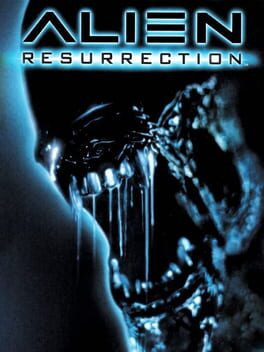
▲
1
▼
On December 19, 2023, programmer Martin Piper revealed a pair of hidden cheat codes he included in the original release of Alien Resurrection. To execute these codes, you need to go into the game's Options menu and unlock the Cheat Menu with the code Circle/Left on the D-Pad/Right on the D-Pad/Circle/Up on the D-Pad/R2. The cheats Piper revealed include the following:
• A level selection menu can be unlocked in the Options menu right after unlocking the Cheat Menu by pressing R1/Down on the D-Pad/R1/Right on the D-Pad/L1/Up on the D-Pad/L2/Square. If entered correctly, you will hear a "bonk" sound indicating the code has been activated. Re-entering the Cheat Menu will reveal an additional option to re-visit any section in any level in the game.
• The more notable of the two codes Piper revealed is one that allows the Alien Resurrection disc to act as a boot disc to play PlayStation games on any burned CD-R disc without the use of modding. This novelty method works with any PlayStation model (as long as you have something to block the tray disc sensor on newer models so you can swap out the disc with the tray open), and must be done after unlocking the level selection menu (you can save after unlocking this menu so you do not have to unlock it again if you want to perform the disc swap trick). Once that is unlocked, go back to the Options menu and enter the code Left on the D-Pad/Up on the D-Pad/Right on the D-Pad/Down on the D-Pad/Right on the D-Pad/Up on the D-Pad/Left on the D-Pad/Square/Triangle/Square/Triangle/L1. The "bonk" sound will again be heard if the code is activated. Next, go back to the Cheat Menu and set the level selection to Level 6 and Section 1. Then while highlighting Section 1, hold down L1 (Note: it's imperative to keep holding down L1 for the remainder of this method) and press X. The screen will turn black and the Alien Resurrection disc will stop spinning, at which point you can swap out the disc with a burned CD-R disc of any PlayStation game you desire. While still holding L1, hold Square and Triangle, and then release all three buttons to boot the burned CD-R game.
When asked by YouTube channel Modern Vintage Gamer, Piper revealed that the latter cheat code had never been disclosed to Sony when the game was sent in for certification as Sony would have immediately sent the game back and forced the developers to remove it since it acted as a backdoor for playing pirated games, and he believed that no other developers who worked on the game were made aware of it either. In a YouTube comment, he explained that he only revealed the codes now because it had been so long since the game's release and he did not want to hold onto the secret for the rest of his life. According to him, the intent of the feature stemmed from Alien Resurrection potentially being planned as a multi-disc game, with the feature being implemented as a test to see if discs could be changed without resetting the PlayStation. Unlike standard multi-disc games that function with the PlayStation's built-in ability to swap out discs through an API call to maintain memory data without fully resetting the console, Alien Resurrection has code that loads an .exe file on any burned CD-R disc you swap it out with to start that new game up while bypassing the PlayStation's anti-piracy protection check.
• A level selection menu can be unlocked in the Options menu right after unlocking the Cheat Menu by pressing R1/Down on the D-Pad/R1/Right on the D-Pad/L1/Up on the D-Pad/L2/Square. If entered correctly, you will hear a "bonk" sound indicating the code has been activated. Re-entering the Cheat Menu will reveal an additional option to re-visit any section in any level in the game.
• The more notable of the two codes Piper revealed is one that allows the Alien Resurrection disc to act as a boot disc to play PlayStation games on any burned CD-R disc without the use of modding. This novelty method works with any PlayStation model (as long as you have something to block the tray disc sensor on newer models so you can swap out the disc with the tray open), and must be done after unlocking the level selection menu (you can save after unlocking this menu so you do not have to unlock it again if you want to perform the disc swap trick). Once that is unlocked, go back to the Options menu and enter the code Left on the D-Pad/Up on the D-Pad/Right on the D-Pad/Down on the D-Pad/Right on the D-Pad/Up on the D-Pad/Left on the D-Pad/Square/Triangle/Square/Triangle/L1. The "bonk" sound will again be heard if the code is activated. Next, go back to the Cheat Menu and set the level selection to Level 6 and Section 1. Then while highlighting Section 1, hold down L1 (Note: it's imperative to keep holding down L1 for the remainder of this method) and press X. The screen will turn black and the Alien Resurrection disc will stop spinning, at which point you can swap out the disc with a burned CD-R disc of any PlayStation game you desire. While still holding L1, hold Square and Triangle, and then release all three buttons to boot the burned CD-R game.
When asked by YouTube channel Modern Vintage Gamer, Piper revealed that the latter cheat code had never been disclosed to Sony when the game was sent in for certification as Sony would have immediately sent the game back and forced the developers to remove it since it acted as a backdoor for playing pirated games, and he believed that no other developers who worked on the game were made aware of it either. In a YouTube comment, he explained that he only revealed the codes now because it had been so long since the game's release and he did not want to hold onto the secret for the rest of his life. According to him, the intent of the feature stemmed from Alien Resurrection potentially being planned as a multi-disc game, with the feature being implemented as a test to see if discs could be changed without resetting the PlayStation. Unlike standard multi-disc games that function with the PlayStation's built-in ability to swap out discs through an API call to maintain memory data without fully resetting the console, Alien Resurrection has code that loads an .exe file on any burned CD-R disc you swap it out with to start that new game up while bypassing the PlayStation's anti-piracy protection check.
GamesRadar article:
https://www.gamesradar.com/after-23-years-developer-reveals-he-snuck-a-cheat-code-past-sony-that-turns-a-cult-classic-horror-game-into-a-godsend-for-retro-enthusiasts/
Video demonstrating the cheat codes (with link to Martin Piper comment):
https://www.youtube.com/watch?v=uRB7iUCX4KQ&;lc=UgxY-VgMjlsrZyWx01J4AaABAg.9yVrngKLtP59yVsLHbNHfR
https://www.gamesradar.com/after-23-years-developer-reveals-he-snuck-a-cheat-code-past-sony-that-turns-a-cult-classic-horror-game-into-a-godsend-for-retro-enthusiasts/
Video demonstrating the cheat codes (with link to Martin Piper comment):
https://www.youtube.com/watch?v=uRB7iUCX4KQ&;lc=UgxY-VgMjlsrZyWx01J4AaABAg.9yVrngKLtP59yVsLHbNHfR

▲
1
▼
The European version of Um Jammer Lammy and the US version of Dino Crisis mistakenly use the Japanese version of the generic PlayStation anti-piracy screen.
The Cutting Room Floor articles:
https://tcrf.net/Um_Jammer_Lammy#Anti-Piracy_Oddity
https://tcrf.net/Dino_Crisis_(PlayStation)#Anti-Piracy_Screen
https://tcrf.net/Um_Jammer_Lammy#Anti-Piracy_Oddity
https://tcrf.net/Dino_Crisis_(PlayStation)#Anti-Piracy_Screen
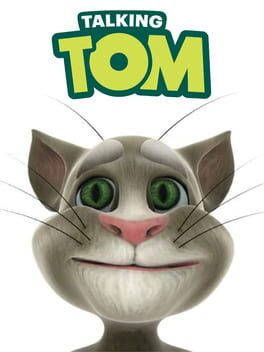
▲
1
▼
The pro version of Talking Tom Cat has an anti-piracy feature - if the game detects that it was pirated, Tom's voice will be so fast that it cannot be comprehended. The free and 2.0 versions of the game do not have this feature.
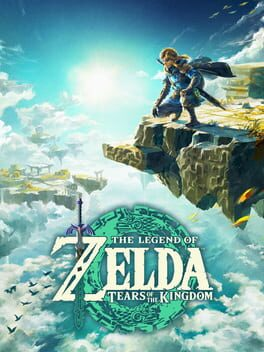
▲
2
▼
When The Legend of Zelda: Tears of the Kingdom launched, a player who acquired the game early posted an image of them playing it and tagged multiple accounts associated with Nintendo to provoke them. This would be responded to by former Nintendo of America president Reggie Fils-Aime with a quote from the movie Taken. While the gaming press and many fans thought this was humorous, it also received major backlash (particularly from people who had already grown to dislike Reggie due to his comments on the blockchain and the police force, and allegations of Nintendo's corporate culture during his tenure) due to Reggie directly quote-retweeting the post for all of his audience to see, screenshotting the post without censoring their username when the user took precautions to protect themselves from the audience attracted by Reggie's post, and using a quote that - in its original context - was a death threat, which only intensified when it was discovered that the user in question was 16 years old at the time.

▲
1
▼
Not counting cheat code utilities, MaxPlay Classic Games Volume 1 is the only unlicensed Nintendo GameCube game that is known to have been sold at retail.
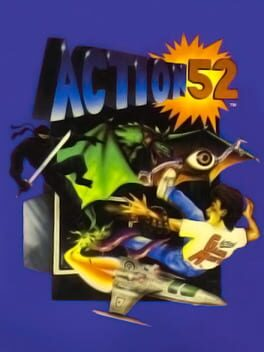
subdirectory_arrow_right Active Enterprises (Company)
▲
2
▼
 The Action Gamemaster was a 16-bit portable game console announced by Active Enterprises, infamous for Action 52, in 1994 - it would've had a slot for games designed for it, as well as adapters that would allow it to play SNES, Genesis, NES, and CD-ROM games, alongside adaptors that served as a TV tuner and cigarette lighter.
The Action Gamemaster was a 16-bit portable game console announced by Active Enterprises, infamous for Action 52, in 1994 - it would've had a slot for games designed for it, as well as adapters that would allow it to play SNES, Genesis, NES, and CD-ROM games, alongside adaptors that served as a TV tuner and cigarette lighter.The console never released due to Active going out of business, and if it were to release it is unlikely that it would have bared much resemblance to the overly-ambitious original plan due to emulation not being in an advanced state at the time and patents for the 3 game platforms still being active.
Notably, the Action Gamemaster is also the name of a character in the NES version of the Cheetahmen minigame of Action 52.
Console Database entry:
https://www.consoledatabase.com/consoleinfo/actiongamemaster/
NES World article on Active Enterprises' appearance at the Consumer Electronics Show 1994:
http://www.nesworld.com/aeces94.php
https://www.consoledatabase.com/consoleinfo/actiongamemaster/
NES World article on Active Enterprises' appearance at the Consumer Electronics Show 1994:
http://www.nesworld.com/aeces94.php

▲
2
▼
British Telecom's "Firebird Software" label, publishers of Don't Buy This, encouraged players to pirate the game, and had a competition where the players who sent the best hate mail would receive stickers and badges.
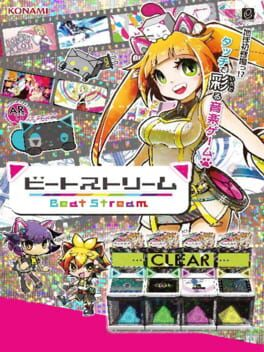
▲
1
▼
eAMUSEMENT support for the BeatStream series ended on September 1st, 2017, with conversion kits for ノスタルジア (NOSTALGIA) offered in March the same year. However, unlike other discontinued BEMANI games, no offline patch was ever created, which is necessary for the game to be playable without an eAMUSEMENT connection. This renders BeatStream completely unplayable in any official capacity.
End of Service announcement:
https://p.eagate.573.jp/game/beatstream/animtribe/p/news/info1702.html
Post-support archives:
https://p.eagate.573.jp/game/beatstream/animtribe/p/music/movie_index.html
https://p.eagate.573.jp/game/beatstream/animtribe/p/news/index.html
English wiki summary:
https://remywiki.com/AC_BST_AnimTribe#General_Information_/_Changes
https://p.eagate.573.jp/game/beatstream/animtribe/p/news/info1702.html
Post-support archives:
https://p.eagate.573.jp/game/beatstream/animtribe/p/music/movie_index.html
https://p.eagate.573.jp/game/beatstream/animtribe/p/news/index.html
English wiki summary:
https://remywiki.com/AC_BST_AnimTribe#General_Information_/_Changes
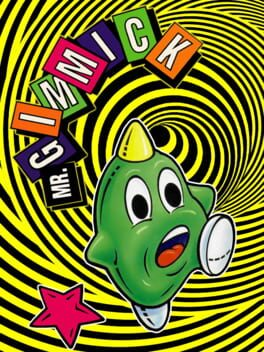
▲
1
▼
 The original Japanese version of Gimmick contains a unique anti-piracy response where, if the opening cutscene is tampered with, the player will not be able to access the secret final level and it will instead cut to a black screen saying "BLACK HOLE" in reference to the game Atlantis no Nazo. Contrary to popular belief, this was not intended as an anti-piracy method, but rather a failed attempt by game designer Tomomi Sakae to prevent his name from being removed from the opening credits. This trigger was neatly edited around its intended purpose, and was eventually removed in the Scandinavian release of the game, though Sakae's name was reinstated as an unused line of intro text.
The original Japanese version of Gimmick contains a unique anti-piracy response where, if the opening cutscene is tampered with, the player will not be able to access the secret final level and it will instead cut to a black screen saying "BLACK HOLE" in reference to the game Atlantis no Nazo. Contrary to popular belief, this was not intended as an anti-piracy method, but rather a failed attempt by game designer Tomomi Sakae to prevent his name from being removed from the opening credits. This trigger was neatly edited around its intended purpose, and was eventually removed in the Scandinavian release of the game, though Sakae's name was reinstated as an unused line of intro text.
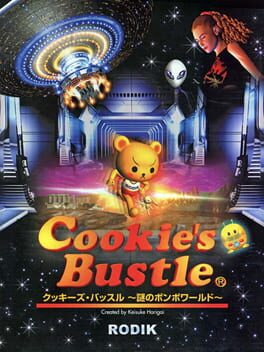
▲
3
▼
In 2023, an unknown person by the name of Brandon White bought the UK rights to Cookie's Bustle under the fake company name of "Graceware" and began filing DMCA takedowns against any website or video with documentation of the game, in some cases fraudulently using the name of Nintendo, believed to be in an act of copyright trolling. This led to an uptick in interest in the game, with many content creators streaming, making fan works based on, and reviewing the game in retaliation.

▲
1
▼
The ZX Spectrum version of Sqij was made using Ocean Software's Laser BASIC coding software, and contains significant chunks of the library in its code, which could be easily reverse engineered, allowing one access to the suite of Laser BASIC tools for the £1.99 price of Sqij as opposed to the £14.95 asking price of Laser BASIC.
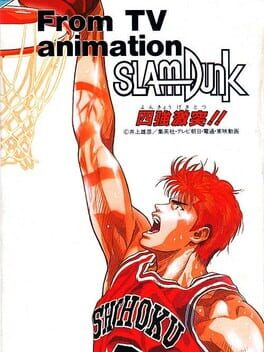
▲
1
▼
 The game will detect for any piracy activity during most screen transitions in three different ways: by saving, by writing to read-only memory, and by checking if the game is played on a PAL-region console. Should the game detect itself as a pirated copy, the game will display a black screen with the Japanese katakana word "ビデオ" ("Video") on the top right corner of the screen, imitating the video input channel display on common television sets at the time. The text then proceeds to behave erratically, as if the TV had glitched. Presumably, this screen was designed to taunt pirates for playing an unauthorized copy of the game.
The game will detect for any piracy activity during most screen transitions in three different ways: by saving, by writing to read-only memory, and by checking if the game is played on a PAL-region console. Should the game detect itself as a pirated copy, the game will display a black screen with the Japanese katakana word "ビデオ" ("Video") on the top right corner of the screen, imitating the video input channel display on common television sets at the time. The text then proceeds to behave erratically, as if the TV had glitched. Presumably, this screen was designed to taunt pirates for playing an unauthorized copy of the game.A variant of this screen exists in the game's sequel, From TV Animation Slam Dunk 2: IH Yosen Kanzenhan!, serving as the screen saver for that game's debug mode as well.

subdirectory_arrow_right Pokémon Shield (Game)
▲
1
▼
In early 2021, a man from Nagoya, Japan was arrested after hacking and modifying Pokémon in his copy of the game and selling them to people. The Japanese police and The Pokémon Company felt this was in violation of the country's "Unfair Competition Prevention Act (UCPA)" and therefore illegal. The man was first brought to the police's attention after selling a modified Sobble for ¥4,400 (US$42), but he was eventually able to make ¥1.15 million (US$11,000) from various transactions before being arrested. It's suspected that the reason for trading these hacked Pokémon was due to the potential ability changes that hacking allowed which could provide easy advantages in the competitive scene without going through the time to catch them in-game.
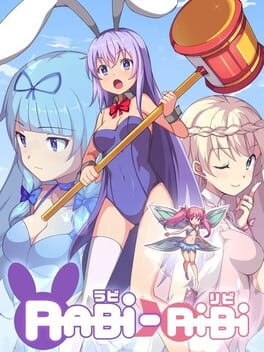
▲
1
▼
To detect if the Steam version of the game is a pirated copy, the game registers a fake DLC ID with SteamAPI. If a Steam emulator unlocks all DLC, the game won't progress past the first chapter and will open browser windows to the Steam page of the game every frame, potentially freezing your computer for having too many tabs on your browser.
pack/database/stat.rbrb also contains this text about a popular Steam emulator. It's referenced in the exe so it's not completely unused, but if it actually triggers anything is unknown.
"steam_api.dll.ali123
ALI123.INI
- STEAM NOT DETECTED! RESTART GAME TO ENABLE STEAM FUNC! -"
As of 2.00 the game also checks the integrity of steam_api.dll and will softlock after defeating a boss in Chapter 2 by disabling your controls.
pack/database/stat.rbrb also contains this text about a popular Steam emulator. It's referenced in the exe so it's not completely unused, but if it actually triggers anything is unknown.
"steam_api.dll.ali123
ALI123.INI
- STEAM NOT DETECTED! RESTART GAME TO ENABLE STEAM FUNC! -"
As of 2.00 the game also checks the integrity of steam_api.dll and will softlock after defeating a boss in Chapter 2 by disabling your controls.
Platform: PlayStation
▲
1
▼
Although the PlayStation has extraordinary copy protection, many hackers, home-brewers, and pirates worked around it via the infamous "Disc Swap" trick which is possible as the console uses a lid in a similar fashion to a portable CD player. This trick involves swapping a regular PlayStation disc with a back-up or rewritable CD during the startup.
Likely because of this exploit, Sony created future numbered PlayStation consoles that use disc trays rather than lids.
Likely because of this exploit, Sony created future numbered PlayStation consoles that use disc trays rather than lids.

▲
1
▼
 If the game detects the copy you are playing is pirated, all dialogue text will be replaced with the Borginian "language" font from Apollo Justice: Ace Attorney, making all the dialogue in the game unreadable, as the characters are swapped randomly. The game is still playable, but playing a visual novel without being able to understand the majority of the text is not intended for the genre. Various button labels, character names and evidence you collect have their text values intact, but the Organizer descriptions on the Touch Screen are replaced with several X's.
If the game detects the copy you are playing is pirated, all dialogue text will be replaced with the Borginian "language" font from Apollo Justice: Ace Attorney, making all the dialogue in the game unreadable, as the characters are swapped randomly. The game is still playable, but playing a visual novel without being able to understand the majority of the text is not intended for the genre. Various button labels, character names and evidence you collect have their text values intact, but the Organizer descriptions on the Touch Screen are replaced with several X's.